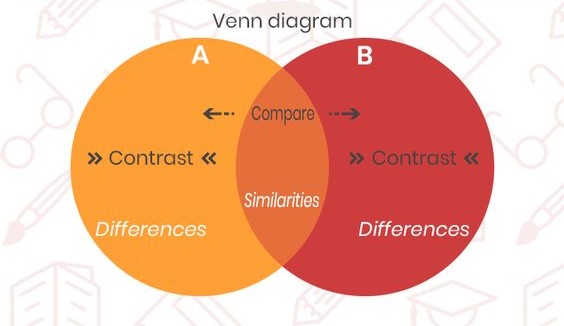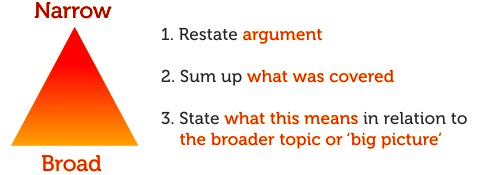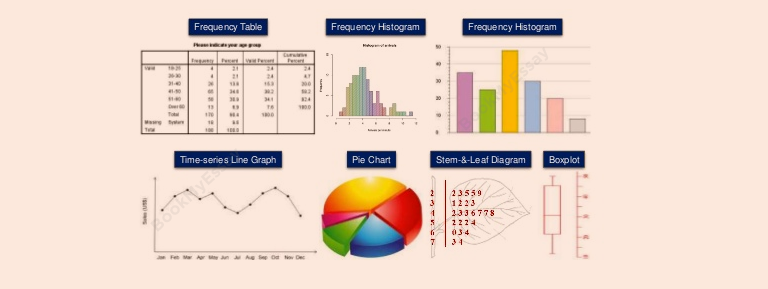
Table of Contents
The world of nursing is a dynamic tapestry woven from diverse perspectives, practices, and philosophies. To truly understand this intricate landscape, aspiring nurses must develop critical thinking skills, and one crucial tool in this arsenal is the compare and contrast nursing essay.
This essay format, often a staple in nursing programs, encourages students to analyze and synthesize information, ultimately deepening their understanding of nursing theory and practice. However, crafting a successful compare and contrast nursing essay can be daunting, particularly for those new to the academic writing world.
This guide aims to equip you with the tools and strategies needed to confidently navigate the terrain of comparison and produce a compelling and insightful essay.
Steps to Crafting a Stellar Compare and Contrast Nursing Essay
1. The Foundation: Choosing Your Topic
The first step in writing any effective essay is selecting a relevant and engaging topic. When it comes to compare and contrast nursing essays, the scope is vast. You might be asked to compare:
- Different nursing theories: Examine the strengths and weaknesses of contrasting theories like Maslow’s Hierarchy of Needs and Orem’s Self-Care Deficit Theory.
- Nursing interventions: Compare the efficacy and ethical implications of different approaches to pain management, wound care, or infection control.
- Healthcare settings: Analyze the advantages and disadvantages of working in a hospital versus a community health setting.
- Nursing roles: Delve into the unique responsibilities and challenges faced by registered nurses versus advanced practice nurses.
- Historical developments in nursing: Compare the evolution of nursing practices from the Florence Nightingale era to the modern era.
2. Establishing a Clear Focus: Defining Your Purpose
Once you have your topic, it’s crucial to establish a clear purpose for your essay. This involves answering a key question: what specific aspect of the chosen topics do you want to explore? Do you aim to:
- Identify similarities: Focus on shared characteristics, principles, or practices between the chosen topics.
- Highlight differences: Emphasize the distinct features, challenges, or implications of each topic.
- Offer a nuanced comparison: Analyze both similarities and differences, ultimately presenting a balanced and insightful evaluation.
3. The Structure: Building a Solid Framework
A well-structured compare and contrast nursing essay is essential for conveying your ideas clearly and effectively. Consider these structural approaches:
- Block Method: Present all information about one topic first, then follow with a separate section discussing the other topic. This approach is ideal when highlighting distinct characteristics of each subject.
- Point-by-Point Method: Organize your essay by comparing and contrasting specific points or features of both topics side-by-side. This structure promotes a more direct and detailed analysis.
4. The Art of Comparison: Crafting Effective Comparisons
The heart of any compare and contrast nursing essay lies in the comparisons you make. To ensure these comparisons are insightful and impactful, keep these tips in mind:
- Identify Relevant Similarities and Differences: Carefully analyze your chosen topics to identify key features, principles, or practices that are similar or different.
- Use Transition Words and Phrases: Employ transitional words and phrases like “similarly,” “in contrast,” “on the other hand,” and “however” to create smooth transitions between points of comparison.
- Provide Supporting Evidence: Back up your claims with concrete examples, research findings, and relevant nursing theories to strengthen the credibility of your comparisons.
- Maintain a Balanced Perspective: Strive for objectivity in your analysis, presenting a fair and unbiased assessment of both sides of the comparison.

5. Weaving Your Argument: Crafting a Compelling Thesis Statement
A strong thesis statement serves as the guiding light of your compare and contrast nursing essay. It succinctly states your main argument and informs the direction of your entire essay.
When crafting your thesis statement, consider:
- Clearly State Your Point of View: Articulate your position on the chosen topics. For example, “While both traditional and virtual simulations offer valuable learning experiences for nursing students, virtual simulations are more effective in fostering critical thinking skills due to their immersive nature and ability to personalize scenarios.”
- Provide a Roadmap for the Essay: Your thesis should act as a roadmap, outlining the key points of comparison and the overall conclusion you will reach.
6. The Importance of Evidence: Supporting Your Claims
A strong compare and contrast nursing essay relies on evidence to substantiate its claims. Integrate these types of evidence to enhance the credibility of your essay:
- Peer-Reviewed Research: Cite studies, articles, and reports from reputable sources in nursing journals to support your analysis.
- Nursing Theories: Reference relevant nursing theories to provide a theoretical framework for your comparisons.
- Clinical Experience: Draw upon your own observations and experiences as a nursing student or practicing nurse to provide real-world context.
- Case Studies: Use specific patient cases to illustrate the impact of different nursing practices or interventions.
7. The Final Touch: Writing a Powerful Conclusion
The conclusion of your compare and contrast nursing essay is your opportunity to synthesize your analysis and leave a lasting impression on your reader. Aim to:
- Restate Your Thesis: Briefly summarize your main argument in a clear and concise manner.
- Highlight Key Findings: Summarize the most important similarities and differences you discovered in your analysis.
- Provide a Final Thought or Recommendation: Conclude with a meaningful takeaway, suggesting future implications or potential areas for further exploration.

8. Refining Your Work: The Art of Revision and Editing
Once you have finished writing your essay, it’s essential to engage in the crucial process of revision and editing. This involves:
- Reviewing for Clarity and Coherence: Ensure your ideas flow logically and your writing is clear and easy to understand.
- Checking for Accuracy and Support: Verify that your claims are accurate and supported by strong evidence.
- Ensuring Proper Formatting and Style: Adhere to the prescribed formatting guidelines, including citations, referencing, and page layout.
- Polishing the Language: Pay attention to grammar, punctuation, and sentence structure. Seek out feedback from peers or instructors to further enhance the quality of your writing.
9. Beyond the Essay: Applying Your Comparative Skills
The ability to compare and contrast is not just a valuable academic skill; it is a crucial aspect of effective nursing practice. By developing your comparative abilities, you gain a deeper understanding of:
- Patient Needs: Analyzing individual patient situations and comparing them to established clinical guidelines or best practices allows for tailored care.
- Nursing Interventions: Evaluating the effectiveness and safety of different interventions for a particular patient or situation promotes evidence-based decision-making.
- Clinical Decision-Making: Comparing and contrasting different approaches to patient care, including risk factors, benefits, and potential complications, fosters more informed and patient-centered decision-making.
10. Navigating the Challenges: Overcoming Common Pitfalls
Even with a clear understanding of the process, writing a successful compare and contrast nursing essay can present its own set of challenges:
- Information Overload: Managing a large amount of information from various sources can be overwhelming. Develop a system for organizing your research and prioritize key information.
- Maintaining Objectivity: Bias can creep into your analysis, especially when dealing with controversial topics. Be mindful of your own perspectives and seek feedback from others to ensure objectivity.
- Avoiding Redundancy: Ensure each point of comparison offers new insights and avoids simply restating information already discussed.
- Meeting Expectations: Carefully review the assignment instructions and guidelines to ensure your essay meets all requirements.
11. Embracing the Power of Comparison:
The compare and contrast nursing essay is not just an academic assignment; it is a valuable tool for developing critical thinking skills and fostering a deeper understanding of the complex world of nursing. By mastering the principles of comparison and embracing the challenge of analysis, you empower yourself to become a more informed, insightful, and ultimately, more effective nurse.
12. Utilizing the Power of Visual Aids:
For some compare and contrast nursing essays, visual aids can enhance your analysis and make your essay more engaging. Consider using:
- Tables: Organize comparisons of key features, advantages, and disadvantages of your chosen topics.
- Charts: Illustrate trends or statistical data related to your chosen topics.
- Diagrams: Visually represent concepts or processes discussed in your essay.

13. Seeking Expert Guidance:
Don’t hesitate to seek guidance from your instructors, professors, or writing center staff. They can offer valuable feedback on your topic selection, thesis statement, structure, and overall writing quality.
14. The Importance of Feedback:
Incorporating feedback from peers, instructors, and other reviewers can significantly improve the quality of your compare and contrast nursing essay. Be receptive to their suggestions and use them to refine your arguments and strengthen your writing.
Topic Examples for Compelling Compare and Contrast Nursing Essays
Here are 5 compelling topics for a compare and contrast nursing essay:
- The effectiveness of different pain management strategies for chronic pain in elderly patients. This compare and contrast nursing essay could examine the benefits and limitations of pharmacological, non-pharmacological, and complementary therapies. You could discuss how these approaches affect quality of life and patient satisfaction.
- The ethical considerations of utilizing technology in patient care. This compare and contrast nursing essay could explore the benefits of using electronic health records, telehealth, and robotics in healthcare, while also examining potential drawbacks such as privacy concerns, access disparities, and the potential dehumanization of patient care.
- The differences in the nursing care provided in acute care settings versus long-term care facilities. This compare and contrast nursing essay could highlight the unique challenges and responsibilities of nurses in each setting. You could explore the differences in patient populations, treatment modalities, and the role of nurses in promoting patient autonomy and well-being.
- The benefits and drawbacks of different leadership styles in nursing. This compare and contrast nursing essay could analyze the effectiveness of transformational, transactional, and laissez-faire leadership approaches in promoting teamwork, patient safety, and staff satisfaction.
- The impact of different cultural perspectives on nursing care. This compare and contrast nursing essay could explore how cultural beliefs and practices influence patient communication, decision-making, and the overall healthcare experience. It could examine the importance of culturally competent nursing care in promoting equity and providing sensitive care to diverse patient populations.
Common Mistakes in Writing a Compare and Contrast Nursing Essay
Writing a compelling compare and contrast nursing essay requires more than just listing similarities and differences. It involves a deeper analysis, showcasing your understanding of nursing principles and practices. Here are some common mistakes to avoid:
1. Lack of Clear Thesis Statement:
A strong compare and contrast nursing essay needs a clear thesis statement that outlines the main point of comparison. Avoid simply stating that you will compare two nursing theories or approaches. Instead, state your position on their effectiveness, strengths, and weaknesses.
2. Superficial Comparison:
Simply stating obvious differences or similarities without providing in-depth analysis will not suffice. Dive deeper into the nuances of each approach, providing concrete examples and evidence to support your claims.
3. Unbalanced Focus:
A well-structured compare and contrast nursing essay should provide a balanced analysis of both topics. Avoid focusing excessively on one aspect while neglecting the other. Ensure you dedicate equal attention to both elements of your comparison.
4. Lack of Organization:
The structure of your compare and contrast nursing essay is crucial for clarity. Use a logical organizational framework, such as point-by-point or block comparison, to effectively showcase your analysis.
5. Insufficient Evidence:
Back up your claims with strong evidence, including research findings, case studies, and relevant literature. Avoid relying solely on anecdotal evidence or personal opinions.
How to Avoid These Mistakes:
- Formulate a strong thesis statement: Clearly articulate your main point of comparison and your position on the topic.
- Go beyond superficial comparison: Focus on the intricacies of each topic, analyzing their effectiveness and limitations.
- Maintain a balanced focus: Ensure you dedicate equal time and attention to both aspects of your comparison.
- Choose a clear organizational structure: Use either the point-by-point or block comparison method to structure your essay effectively.
- Provide sufficient evidence: Back up your claims with credible research findings, relevant literature, and case studies.
By avoiding these common mistakes, you can write a well-structured and insightful compare and contrast nursing essay that effectively demonstrates your understanding of the chosen topic.
Beyond the Classroom
The skills honed through writing compare and contrast nursing essays extend beyond the classroom and into your nursing career. The ability to critically analyze information, compare different approaches, and present findings effectively is essential for providing safe and effective patient care.

Embracing the Journey
Writing a successful compare and contrast nursing essay requires time, effort, and a commitment to thoughtful analysis. Embrace the challenge as an opportunity to develop critical thinking skills, deepen your understanding of nursing concepts, and refine your writing abilities.
While the process may seem daunting at times, writing compare and contrast nursing essays can be incredibly rewarding. As you delve into your chosen topics, you will gain a deeper understanding of the complexities of nursing, develop valuable research skills, and enhance your critical thinking abilities. Ultimately, the skills you develop through this type of essay writing will contribute to your success as a nursing professional.
Get Compare and Contrast Nursing Essay Writing Help
Are you having trouble with writing a compelling compare and contrast nursing essay? Then, engage our writers at Nursing Papers for customized essay writing help. We offer professional writing services for nursing essays, research papers, case studies and dissertations. Our service covers topic suggestion, paper writing, proofreading and editing, formatting and plagiarism removal.







